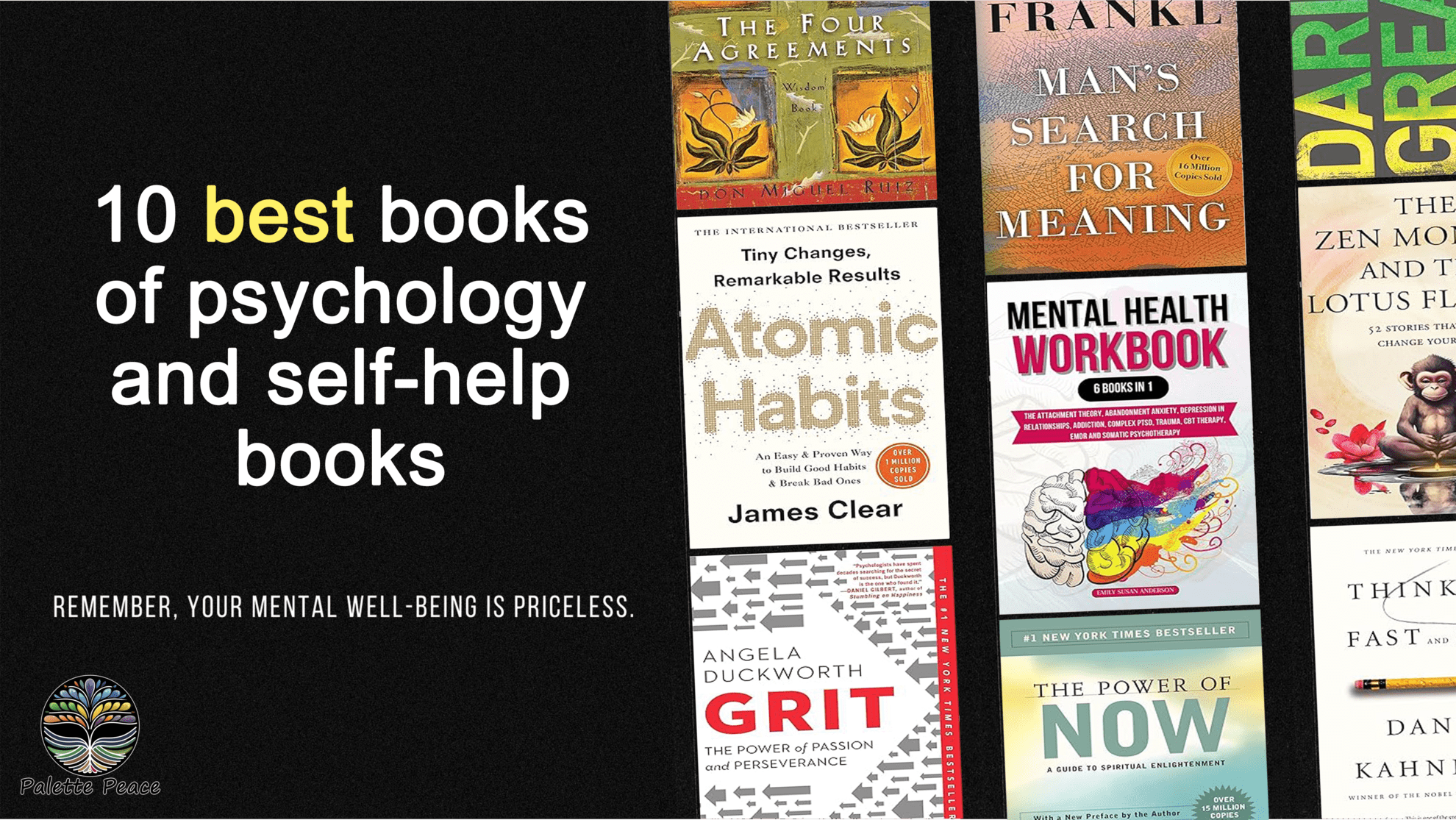Self-criticism can be a deeply ingrained habit for many people, causing emotional distress and leading to anxiety, stress, and low self-esteem. In contrast, self-acceptance and self-love are key elements for mental well-being and personal growth. By transforming self-criticism into self-love, you can unlock a life of peace, self-confidence, and emotional resilience. This article will dive deeply into practical steps to cultivate self-acceptance, highlighting the journey from self-criticism to self-love, with a focus on the most effective strategies for lasting change.
This guide will explore how to overcome negative self-talk, replace judgment with compassion, and foster a positive relationship with yourself. designed to help optimize your search engine rankings by incorporating relevant keywords such as self-acceptance, self-love, overcoming self-criticism, self-compassion, and boosting self-esteem.
The Impact of Self-Criticism on Mental Health
Self-criticism is the act of harshly judging yourself for perceived shortcomings or mistakes. While it might seem like a way to motivate yourself to improve, excessive self-criticism often does the opposite, eroding confidence and increasing feelings of anxiety and unworthiness.
When we engage in constant self-criticism, we train our minds to focus on the negative. This habit can lead to a cascade of negative emotions, including guilt, shame, and fear of failure. Over time, these feelings can manifest as anxiety disorders, depression, or other mental health challenges.
1. Perfectionism and Anxiety
One of the most common causes of self-criticism is perfectionism. Perfectionists set unattainably high standards for themselves and feel extreme disappointment or shame when they fail to meet them. This constant striving for perfection can increase anxiety, as people fear making mistakes or being judged harshly by others.
- Fear of Failure: People who struggle with perfectionism often fear failure so intensely that they avoid taking risks or trying new things, leading to missed opportunities and a narrow, constrained life.
2. Low Self-Esteem and Self-Worth
Another consequence of excessive self-criticism is low self-esteem. When you continually judge yourself harshly, you reinforce the belief that you’re not good enough. This low self-worth can affect every area of your life, including your relationships, career, and personal fulfillment.
- Lack of Self-Confidence: People with low self-esteem may lack confidence in their abilities and have difficulty asserting themselves, which can create feelings of powerlessness and frustration.
The Importance of Self-Acceptance
Self-acceptance is the key to overcoming self-criticism and building self-love. It involves recognizing and embracing all parts of yourself, including your imperfections and past mistakes, without judgment. When you accept yourself as you are, you release the need to be perfect and give yourself permission to be human.
1. Letting Go of Judgment
Self-acceptance means letting go of the internal dialogue that constantly criticizes and judges you. By replacing judgment with compassion, you can foster a healthier relationship with yourself.
- Reframing Mistakes: Instead of viewing mistakes as evidence of your unworthiness, self-acceptance encourages you to see them as learning opportunities. Every setback becomes a chance for growth, rather than a source of shame.
2. Cultivating Self-Love
Self-love is the act of treating yourself with kindness, respect, and care. It’s about prioritizing your well-being, setting healthy boundaries, and giving yourself the love and support you deserve. When you practice self-love, you build a strong foundation of inner peace and emotional resilience.
- Embracing Your Unique Qualities: Self-love means appreciating your unique qualities and valuing yourself just as you are. It allows you to be your own greatest supporter, rather than your harshest critic.
Practical Steps to Cultivate Self-Acceptance and Self-Love
Moving from self-criticism to self-love is a gradual process that requires consistent practice and patience. Here are some practical steps you can take to start cultivating self-acceptance and building a more positive relationship with yourself.
1. Practice Mindful Awareness
The first step in overcoming self-criticism is becoming aware of it. Many people are so used to negative self-talk that they don’t even realize when they’re engaging in it. By practicing mindful awareness, you can begin to notice your self-critical thoughts and create space between those thoughts and your emotional reactions.
- Mindfulness Meditation: A daily mindfulness meditation practice can help you become more aware of your thoughts and feelings. This awareness allows you to recognize when you’re being self-critical and choose a more compassionate response.
- Observe Without Judgment: When you notice self-critical thoughts, try to observe them without judgment. Simply acknowledge that the thoughts are there, without labeling them as “good” or “bad.” This helps you break the habit of reacting to every negative thought with more criticism.
2. Challenge Negative Self-Talk
Once you become aware of your self-critical thoughts, the next step is to challenge them. Self-criticism is often based on distorted thinking patterns, such as black-and-white thinking, catastrophizing, or mind-reading (assuming you know what others think of you).
- Cognitive Restructuring: Cognitive restructuring is a technique used in cognitive-behavioral therapy (CBT) to challenge and reframe negative thoughts. For example, if you catch yourself thinking, “I’m a failure,” ask yourself, “Is this thought really true? What evidence do I have to support it?” This process helps you replace irrational beliefs with more balanced and realistic ones.
- Positive Affirmations: Replace negative self-talk with positive affirmations that reinforce self-love and acceptance. Phrases like “I am worthy just as I am” or “I am learning and growing every day” can help shift your mindset over time.
3. Cultivate Self-Compassion
Self-compassion is the practice of treating yourself with kindness and understanding, especially during difficult times. It’s about offering yourself the same compassion you would offer to a close friend who is struggling.
- Three Components of Self-Compassion: According to psychologist Kristin Neff, self-compassion has three main components: self-kindness, common humanity (recognizing that everyone makes mistakes), and mindfulness. Practicing these three elements can help you develop a more compassionate relationship with yourself.
- Self-Compassion Exercises: When you notice yourself being self-critical, pause and ask, “How would I respond if a friend were feeling this way?” Then, offer yourself that same kindness. You can also write yourself a compassionate letter, expressing understanding and support for whatever challenges you’re facing.
4. Embrace Your Imperfections
Perfectionism often drives self-criticism, but the truth is, no one is perfect. Embracing your imperfections is a crucial part of self-acceptance. When you accept your flaws, you free yourself from the constant pressure to be “good enough.”
- Reframe Imperfections as Strengths: Rather than seeing your imperfections as weaknesses, try to reframe them as strengths. For example, if you tend to be overly cautious, you could view this as a strength in situations that require careful planning. This shift in perspective can help you see yourself in a more positive light.
5. Set Healthy Boundaries with Others
Part of self-love is learning to set healthy boundaries with others. If you’re constantly seeking approval from others or putting their needs before your own, it can reinforce feelings of low self-worth. By setting clear boundaries, you communicate to yourself and others that your well-being is a priority.
- Assertive Communication: Practice assertive communication by expressing your needs and boundaries in a clear, respectful manner. This helps you build confidence and prevents you from overcommitting or allowing others to take advantage of you.
6. Focus on Self-Care
Self-care is a key component of self-love. When you prioritize your physical, emotional, and mental well-being, you reinforce the belief that you are worthy of care and attention. Regular self-care practices help reduce stress, boost mood, and promote a sense of balance in your life.
- Develop a Self-Care Routine: Create a self-care routine that includes activities that nourish your body and mind. This might include exercise, meditation, journaling, spending time in nature, or engaging in hobbies that bring you joy.
7. Surround Yourself with Positive Influences
The people you surround yourself with can have a significant impact on your self-esteem and self-acceptance. Surround yourself with individuals who support and uplift you, rather than those who reinforce negative thinking or judgment.
- Build a Supportive Community: Seek out relationships with people who appreciate you for who you are and encourage your growth. Distance yourself from toxic individuals who criticize or belittle you.
8. Celebrate Your Progress
Finally, it’s important to celebrate your progress along the journey to self-acceptance. Every step you take toward self-love is a victory, and acknowledging those victories helps reinforce positive change.
- Gratitude Practice: Keep a gratitude journal where you write down things you’re grateful for, including aspects of yourself that you appreciate. This practice helps shift your focus from what’s “wrong” to what’s “right.”
- Track Your Growth: Reflect on how far you’ve come in your journey from self-criticism to self-love. By tracking your growth, you’ll notice how much progress you’ve made, which can motivate you to continue moving forward.
Conclusion: The Journey from Self-Criticism to Self-Love
Transforming self-criticism into self-love is a deeply personal journey that requires patience, effort, and self-compassion. By practicing mindfulness, challenging negative self-talk, embracing your imperfections, and prioritizing self-care, you can cultivate a deep sense of self-acceptance and inner peace. Remember, self-acceptance is not about becoming perfect; it’s about embracing your authentic self and realizing that you are worthy of love and respect exactly as you are.
By following these practical steps, you’ll not only reduce anxiety and boost confidence, but also create a more fulfilling, authentic life. With time, self-love will become your default mindset, and self-criticism will no longer hold the same power over you.

10 best books of psychology and self-help books
If you’re looking to dive into the world of psychology and self-help, these 10 books are essential reads for anyone interested in understanding the mind and improving their life. These books offer a combination of scientific insight and practical advice to help you better understand yourself and others, while also offering tools for personal growth and mental well-being.

The Therapeutic Power of Coloring: How Art Relieves Stress and Anxiety
Coloring has evolved from a childhood pastime into a therapeutic tool used by adults to combat stress and anxiety. The simplicity of this activity hides its profound benefits on mental health. From promoting mindfulness to stimulating creativity, coloring has emerged as an accessible and effective method for stress relief. In this article, we’ll explore how coloring provides a break from daily stressors, its effects on brain function, and how it can be incorporated into your routine as a method of coping with anxiety.
Let your imagination run free, Immerse yourself in a world of colors and beauty. Remember, your mental well-being is priceless.
Team coloringbookvibe.com

Coloring Book Vibe is a dedicated publisher of captivating coloring books, along with instructional books on drawing and coloring techniques. We are deeply passionate about the art of coloring, ensuring our designs are always intricate, beautiful, unique, and often infused with a touch of humor. We highly value our customers and always welcome feedback and suggestions. Our collection features an incredible array of coloring books across various genres, including Fantasy, Animals, Mandalas, Doodle Patterns, Floral, Landscapes, Country Scenes, and more.



